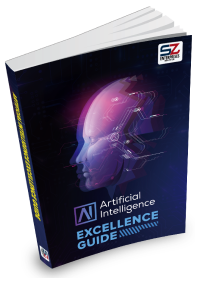Follow us
Information
- Address: 7300-7398 Colonial Rd, Brooklyn, NY 11209
- Call Us: +000 123 456 88
- Email:
Artificial Intelligence Olympiad 
Great Computer Hardwere is only a doorstop without great softwere


More then
2,27000+
Students
About
IAIO international Olympiad
The international AI Olympiad is a visionary academic initiative aimed at equipping the next generation of learners with a solid foundation in the transformative field of Artificial Intelligence (AI). Developed in alignment with modern educational goals and global technology trends, this Olympiad is not merely an academic contest, it is a structured learning journey that fosters curiosity, creativity, and digital fluency in students from an early age.
Through this platform, students are introduced to key AI concepts such as machine learning, data handling, coding fundamentals, neural networks, and digital ethics in a manner that is age-appropriate and engaging. These topics are designed to stimulate critical thinking, encourage logical reasoning, and enhance computational thinking — skills that are essential for academic success and future career readiness in the digital age.
The international AI Olympiad serves as a gateway to future-ready learning. It empowers students to go beyond their textbooks and interact meaningfully with real-world problems through project-based learning, practical coding exercises, and ethical discussions around the responsible use of technology.
By participating in this Olympiad, students gain hands-on exposure on how AI is transforming our world, from smart assistants and predictive tools to healthcare innovations and sustainable technologies. This not only enriches their classroom learning but also prepares them for higher education,
competitive exams, and 21st-century careers in science, technology, engineering, and mathematics (STEM).
In essence, the international AI Olympiad is a launchpad for young innovators, nurturing their ability to think, build, and lead in an AI-driven future.
Olympiad Level 1 – AI Olympiad
The international AI Olympiad is conducted in a single level (Level 1) and is open to all students from Classes 3 to 9.
Examination Format
The AI Olympiad is held during regular school hours and is conducted at the participating students’ schools. It is designed to be student-friendly, concept-oriented, and fair.
Key features of the exam structure include:
- Each class will receive a separate and class-specific question paper to ensure appropriate difficulty levels.
- All questions are objective-type (Multiple Choice Questions).
- There is no negative marking, encouraging students to attempt all questions confidently.
- The exam duration is 40 minutes, making it suitable for the school timetable.
The question paper is grade-specific and consists of the following sections:
(i) Section 1: AI
(ii) Section 2: Scholar’s Zone
Medium & Scheduling of Examination
The International AI Olympiad is conducted only in English to maintain a standardised assessment format and ensure clarity in technical terminology used across all classes. The Olympiad is held once a year and is conducted during school hours to ensure student convenience and maximum participation. Each participating school can select one of the two proposed dates for conducting the Olympiad. Both dates will have separate sets of question papers, ensuring exam integrity and flexibility in scheduling.
Registration of Students
The AI Olympiad prospectus, along with registration forms, is sent to all schools currently registered with the SilverZone Foundation. Please note: The printed prospectus may not reflect the most recent updates. The latest information on syllabus, exam format, levels, and prizes is always available on our official website, we recommend referring to it for accuracy.
For New Schools:
Schools not yet registered with SilverZone may request a prospectus by writing to us at info@silverzone.org. Once received, schools must return the completed registration forms by the specified deadline.
Important Note for Schools
- Any school can become a registered centre for the AI Olympiad. There is no fee required to register the school itself.
- For smooth coordination and exam feasibility, a minimum of 20 students per school is required to register for the AI Olympiad
- For any clarification regarding exam rules, syllabus, paper pattern, or registration process, schools may write to us directly at info@silverzone.org
Test paper
The language medium is English only. The examination is being conducted for all classes from 1st to 12th with the following details.
- For Grades 3-5: There will be 30 questions and the duration will be of 40 Minutes.
- For Grades 6-8: There will be 35 questions and the duration will be of 40 Minutes.
- For Grade 9: There will be 40 questions and the duration will be of 50 Minutes.
Detailed guidelines on how to conduct the test will be shared with the school along with the question papers.
For grades 3rd onwards OMR answer sheets will be provided.
The Olympiad consists of grade-specific objective-type (MCQ) question papers with no negative marking.
Marking Scheme
The tentative chapter-wise marking Scheme will help students to perform better in SilverZone Olympiads. The actual marks distribution may differ depending on the prerogative of the authors/selectors/paper setters concerned.
Artificial Intelligence
Chapters
- The Amazing Journey of Computers to AI
- Welcome to the World of Smart Machines!
- Talking to Machines: Meet AI Assistants
- Let’s Code with Scratch!
- AI is Everywhere!
- Being a Good AI Citizen
- Fun AI Projects
Scholar’s Zone
Chapters
- Scholar’s Zone
Artificial Intelligence
Chapters
- Evolution of AI
- Data: The Fuel for AI
- Different Types of AI
- Coding with Scratch: Create Your Own AI Game
- AI in the Digital World
- The Ethics of AI: Being a Good Digital Citizen
Scholar’s Zone
Chapters
- Scholar’s Zone
Artificial Intelligence
Chapters
- Deepening Our AI Knowledge
- Introduction to Machine Learning
- Data: The Magic Behind Machine Learning
- Basics of Neural Networks: How Machines Learn
- Coding for AI: Scratch Projects
- Myths and Facts of AI
- Being Responsible with AI
Scholar’s Zone
Chapters
- Scholar’s Zone
Artificial Intelligence
Chapters
- The World of AI: A New Adventure
- Python Programming: Getting Started
- Simple Machine Learning with Python
- Data and Visualization: Telling a Story with Numbers
- Neural Network and AI
- AI and the Internet of Things (IoT)
- Ethics & Safety in AI
Scholar’s Zone
- Scholar’s Zone
Artificial Intelligence
Chapters
- Python and AI Recap
- Data Handling for AI
- Introduction to Machine Learning Concepts
- Computer Vision: Teaching Machines to See
- Natural Language Processing (NLP) Made Simple
- AI in Everyday Life & Interactive Applications
- Ethics, Fairness & Digital Citizenship in AI
Scholar’s Zone
- Scholar’s Zone
Artificial Intelligence
Chapters
- Deep Learning
- Python for Deep Learning
- Advanced Computer Vision
- AI for Creativity: Art, Music & Storytelling
- Algorithmic Thinking & Problem Solving with AI
- AI for a Better World
- Ethics and Responsible AI in a Complex World
Scholar’s Zone
- Scholar’s Zone
Artificial Intelligence
Chapters
- Review & Brainstorm: AI in Our Lives
- Python for Building AI Applications
- Data Exploration and Visualization
- Neural Networks and Their Applications
- Advanced Image Recognition
- Creative AI: Merging Technology with Art
- AI Ethics and Social Impact
Scholar’s Zone
- Scholar’s Zone
Raw Score Calculation
The raw score is computed by multiplying each correct answer by its corresponding base marks and summing the results. In mathematical terms: Raw Score = SUM (correct answer × subsequent base Marks).
Total Marks Calculation
Total Marks are determined by adding the raw score to the sum of the weightage of correct answers. Each question carries an additional weightage, starting from .0001 and increasing incrementally (.0002, .0003, and so forth). For instance, Question No. 1 has a weightage of .0001, Question No. 2 has .0002, and so on. This weightage is utilized to resolve ties when calculating Class/Zonal/Olympiads ranks.
Olympiad Rank
This encompasses all students from India and abroad belonging to the same class.
Class Rank
This encompasses all students from various sections/divisions of the same class within the same school.
Sample Papers
Sample Question Papers
The detailed Syllabus and Sample Test Paper are provided in this website, click the following links to download the Syllabus and Sample Test Paper class wise. For Books please contact, School Coordinator or book your order online now.
Prizes
The International Olympiad
rank Prize .

1st Olympiad rank
The 1st International Olympiad rank holder in each class will receive a Prize of Rs. 10,000/-.
2nd Olympiad rank
The 2nd International Olympiad rank holder in each class will receive a Prize of Rs. 7,500/-.


3rd Olympiad rank
The 3rd International Olympiad rank holder in each class will receive a Prize of Rs. 5000/-.
Other Prizes

Zonal & Categorization
Zone/State Categorization
Delhi NCR, Haryana, Punjab, Himachal Pradesh, Uttarakhand, J&K, Ladakh, Chandigarh, Rajasthan, Uttar Pradesh
Maharashtra, Goa, Gujarat, Daman & Diu, Dadara & Nagar Haveli, Madhya Pradesh
West Bengal, Bihar, Jharkhand, Odisha, Assam, Arunachal Pradesh, Tripura, Sikkim, Meghalaya, Mizoram, Nagaland, Manipur, Chhattisgarh
Tamil Nadu, Karnataka, Kerala, Telangana, Puducherry, Lakshadweep, Andhra Pradesh, Andaman & Nicobar
All countries except India
Study Material
Recommendation & Books

OLYMPIAD EXCELLENCE GUIDE
Silverzone- 50K+ Students
- (320+ Reviews)
A series of STEM books have been created for students in grades 3 through 10 to teach them about four key disciplines: Science, Technology, Engineering, and Mathematics. The books for grades 3 through 5 were created to foster a fundamental understanding of these subjects. In contrast, the books for classes 6 through 10 were made in accordance with the NCERT upper primary syllabus.Read More...
